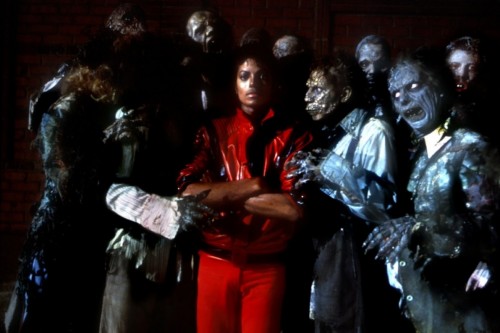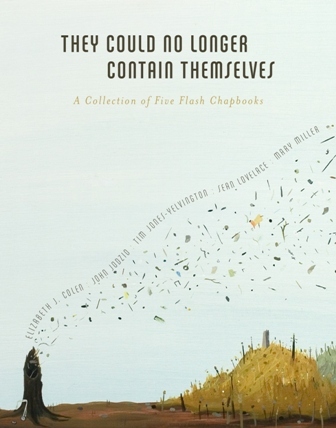This Friday in Brooklyn: “The Case of Nicolas Chauvin” (White Review reading & magazine launch)
 When: Friday, 10 February 2012, 6:30–8:30 pm
When: Friday, 10 February 2012, 6:30–8:30 pm
Where: Cabinet, 300 Nevins Street, Brooklyn (map and directions here)
How: Free; no RSVP necessary
More importantly: “Beer for this event has been lovingly provided by Brooklyn Brewery.”
Why: Please join the London-based White Review for an evening of Chauvin, chauvinism, and their many inheritances. Featuring Ned Beauman on carbon chauvinism and humility in the universe; Joshua Cohen on the absolute best Chauvin biography never written; Jeremy M. Davies on whether any form of literature, however ambiguous, indeterminate, playful, or condemnatory, can escape being a chauvinist for something; and Diego Trelles Paz on Chauvin and national progress in Latin America.
More Who:
{LMC}: My Brain on Beecher’s

Beecher’s has been hanging out in my living room for a while. I read it. Summary, or “my brain on Beecher’s”:
{LMC}: A Marvel of Words

The most incredible thing about Beecher’s Magazine has already been commented on by many, but I will say it again: the thing is gorgeous. Each page is made of elegant, thick paper I don’t know how to classify except to say it’s the kind of paper on which you would print your resumé. The binding is exposed, with black string hanging off its sides and glued down in place. Then there is the cover: on an open expanse of white there is nothing but the letter “b,” its stem shaped like a rifle, with a small red “1” just above it. The “1” refers to the issue, which is Beecher’s first-ever. With this beautiful design, we are off to a good start.
The opening story is Alec Niedenthal’s “Sailing.” I have no idea what this story is about. What are we to make of lines like, “During the day I will make Roger play like he is me and I will play like I am Roger so that Roger, the barbarous queller of my passion, can finally and for the very first time bestow his suffering on me…”? Or, “Then I will have Ralph, I mean Roger, I will have Roger and Dog during the day to take care of, until father comes home and I am his pale sacrifice on the floor.”
{LMC}: Yelena Akhtiorskaya in Beecher’s #1
The editors of Beecher’s #1 should be applauded for picking fiction and poetry that are all remarkably consistent in structure and tone. This issue of Beecher’s values images over plot in the traditional sense. The pieces are usually quite short and aim to evoke a mood through the use of exquisite, concise, and deliberate writing. Basically, if you’re looking for sensitive stories about sad people in the suburbs having affairs, or speculative romps through alien lands, then this ain’t the journal for you.
The writing in Beecher’s is almost uniformly great and most of the pieces succeed at their goals. But this consistency could, somehow, work against the journal in the long run. I couldn’t read more than two or three entries in one sitting, and they’re short (most of the fiction is a page or two), because it all started to sound a little too much alike. The pieces are so similar to each other that I kept forgetting who the authors were. At times I’d think that I had already read a story, but then realize I was confusing it with another piece with a similar tone and feeling. For example, the lists and repetition in Joshua Cohen’s story, “The Rules (Gulf Version)” is very similar to the lists and repetition in Colin Winnette’s “Playing with Myself: A Series”—even the titles sound the same. John Dermot Woods’s flash fiction, featuring unique characters in unique, unsettling situations, is pretty similar to Alexis Orgera’s prose poems, which feature unique characters in unique, unsettling situations.
This observation isn’t meant to take anything away from the separate pieces. Orgera’s poems are some of the strongest in the journal, and Cohen is as dazzling as always. Perhaps this is a larger debate. Is it possible for a journal to be too consistent? When does a sustained effect move from intriguing to repetitive?
{LMC}: Beecher’s One
The first thing you will notice about Beecher’s is the design and production–clean and elegant. The spine is bound with black thread. The pages are thick, linen, creamy, the grain of it holding the ink to the page.
Introducing a video about the debut issue, the editors said, “Beecher’s One was designed to give the text inside primacy, and as well record the reader’s tactile interaction with the physical magazine. The layout is straight-forward, and the text is presented simply in a black serif font on white paper. The physical object, with a naked spine and rigid, toothy, absorbent paper is meant to show evidence of the reader by literally absorbing and recording the reading experience: the hands holding the book, the fingers on the page, the bending of turned pages, the weakening of the unprotected spine.”
Reading Beecher’s is, indeed, a physical experience that openly acknowledges and engages the reader. This is a magazine that wants to develop a relationship with readers and writers. In this, and other regards, Beecher’s succeeds beautifully. The writing showcased within the magazine’s pages is as engaging as the design and production. Contributors include Rebecca Wadlinger, Alec Niedenthal, Joshua Cohen, Rhoads Stevens, John Dermot Woods, Phil Estes, Creed J. Shepard, Lincoln Michel, John Coletti, Yelena Akthiorskaya, Colin Winnette, Dana Ward & Stephanie Young, James Yeh, Alexis Orgera, Rozalia Jovanovic, Ricky Garni, and Justin Runge as well as interviews with Stephen Elliott and Adam Robinson.
Literary Magazine Club Never Dies
I’m reviving LMC and the first magazine we’ll be discussing is Beecher’s, the graduate student run literary magazine from the University of Kansas. We’ll feature a new magazine every two months and hopefully that lighter schedule will allow more readers to participate.
The debut issue of Beecher’s we’ll be reading features Alec Niedenthal, Rebecca Wadlinger, Joshua Cohen, Rhoads Stevens, John Dermot Woods, Phil Estes, Creed J. Shepard, Lincoln Michel, Yelena Akhtiorskaya, John Coletti, Colin Winnette, Dana Ward & Stephanie Young, James Yeh, Alexis Orgera, Rozalia Jovanovich, Ricky Garni, and Justin Runge.
Things I’ve Read Lately
I’ve read some interesting books and magazines over the past couple weeks so I’m going to talk about them in one big post. Also, I’m giving several books away.
They Could No Longer Contain Themselves
I don’t care for the term flash fiction. I understand the etymology but I often think, “Why not call it a story?” There are so many terms now for different kinds of fiction. There is an obsession with naming, creating taxonomies so we can better understand the nature of a thing. Flash fiction. Very short stories. Sudden fiction. Microfiction. Nanofiction. All these terms strive to categorize the nature of stories that fous on brevity and compression. Ask five different writers how to define flash fiction and you will likely hear five different definitions. I read an article in the most recent issue of The New Yorker about tiny houses, and the writer talks about the article’s main subject, this guy named Shafer who designs tiny houses and the writer says, “What makes Shafer’s houses different from others is the classical elements of form and proportion and the graceful compression of his design.” I kept thinking about that line as I thought about the stories in They Could No Longer Contain Themselves. They each contain the classical elements of good fiction and the compression in each story is also graceful like a tiny house that holds everything you need to feel at home.
In They Could No Longer Contain Themselves, the latest book from the reliably excellent Rose Metal Press, five writers offer five unique interpretations of flash fiction in chapbooks by Mary Miller, Elizabeth J. Colen, John Jodzio, Tim Jones-Yelvington, and Sean Lovelace (I reviewed his chapbook in 2009, here).
July 25th, 2011 / 5:36 pm
Gigantic Issue #3 Launch
New York City’s consistently innovative print/online journal Gigantic is launching its third issue (Gigantic Indoors) in Brooklyn on Friday 8-4:30 AM. Beer’d by Brooklyn Brewery, “live performance and installation by Newvillager,” and on the Williamsburg Waterfront (!)–all the trappings of a Williamsburg soiree (what my parents used to call a “function” or “gala”) without the constant discomfort and guilt. “Our people” don’t often throw such massive events on this side of the borough, so take advantage, please. Readers include: Chloe Cooper Jones, Joshua Cohen, Lauren Spohrer and John Dermot Woods. Admission is free for subscribers, and $10 for non-subscribers. Please RSVP here, on the Facebook. Attractive people will not receive free admission simply because they are attractive, easing the resentment that their less attractive friends already feel toward them.
Suggested Reading List for My Spring 2011 Fiction Workshop
(Because if you’re going to make a writer of yourself, you must read your brains out.) *
All Things, All at Once, Lee K. Abbott
The Box Man, Kobo Abe
Things Fall Apart, Chinua Achebe
The Children’s Hospital, Chris Adrian
A Death in the Family, James Agee
Man In His Time, Brian W. Aldiss READ MORE >
“Orange Juice,” Personality, and Literature
In the third-to-last paragraph of Timothy Willis Sanders’ new book, Orange Juice and Other Stories, from Awesome Machine Press, the protagonist sees six babies lying in a fountain. Four are lying in the fountain, and two are pissing into it. “This means something,” he says. “I just don’t care what.”
 I could try to interpret what the author may have meant by placing that scene, that paragraph, those words in his book, particularly at the end of his book, but I want to point at it, nothing more.
I could try to interpret what the author may have meant by placing that scene, that paragraph, those words in his book, particularly at the end of his book, but I want to point at it, nothing more.
Orange Juice is 52 pages long and includes nine stories. The stories are very short, the style is minimalist, the language straightforward. Sanders may have been influenced by Zachary German’s Eat When You Feel Sad, as evidenced by the use of minimalist declarative sentences mostly involving actions, the consistent specifying of brand names, and the presence of characters who have names but whose external appearance and internal thoughts are mostly withheld. The characters appear through actions and words.
But this book seems to have a very different personality than German’s book. More on personality later.
It is a very subtle book. “Orange Juice,” the first and titular story, manages to suggest, in two short pages, a tense, complicated, but largely unspoken conflict between a man, Bill, his girlfriend(?), Jeanie, and Jeanie’s son, Chris. And the sentences are like this: “Bill makes a list. He highlights and underlines ‘pulp-free Minute Maid.’ Chris walks through the kitchen and Jeanie catches him by the elbow. Chris jerks free.”
November 19th, 2010 / 1:13 pm





